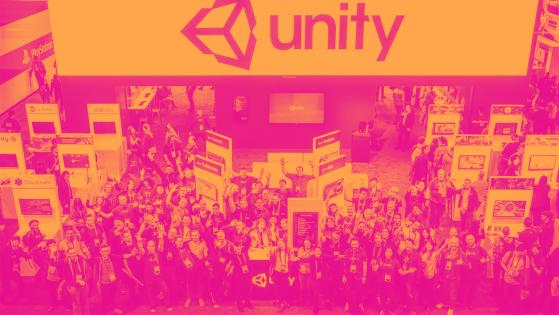What Happened: Shares of game engine maker Unity (NYSE:U) fell 7.34% in the morning session after the company introduced a controversial pricing change called the "Unity Runtime Fee". It was to be implemented on January 1, 2024. Under this new pricing plan, developers using Unity Engine (the Unity Editor and the Unity Runtime) are subject to additional charges for each player who installs their game. The change was not to be well received by many of its developers, and Unity has faced criticism. Developers criticizing it specify that clarification is needed about how the pricing change will affect their future budget, growth and potential profitability.
Unity responded to some of these concerns by stating that the plan will mostly impact developers with highly successful games that generate revenue above certain thresholds. The company argued that this approach is intended to support newer developers in growing their audience and finding success before being charged under the new plan.
As the backlash from developers, especially on social media, became more widespread, Unity made additional tweaks to the pricing plan. For example, it now expects to charge developers only when a user first installed a game and not on subsequent re-installs. This handles some concerns like "install bombing" where a user re-installs a game several times and potentially drives multiple charges. However, it also implies that the additional revenue and growth potential perhaps being modelled may not play out. This episode is also a reminder that the relationship between Unity and its developer community is a lifeblood to the company but can also sometimes be fraught.
The stock market overreacts to news, and big price drops can present good opportunities to buy high-quality stocks. Is now the time to buy Unity? Find out by reading the original article on StockStory.
What is the market telling us: Unity's shares are very volatile and over the last year have had 69 moves greater than 5%. In context of that, today's move is indicating the market considers this news meaningful but not something that would fundamentally change its perception of the business.
The biggest move we wrote about over the last year was four months ago, when the stock gained 11% on the news that the company reported a "beat and raise" quarter. First quarter results exceeded analysts' revenue, adjusted EBITDA, and earnings per share estimates. However, the company continued to burn cash, and gross margin deteriorated. Revenue guidance for the next quarter came in above Consensus, and the full year guidance was lifted. Adjusted EBITDA guidance also exceeded estimates for the next quarter and the full year. Management added more color to the guidance, noting that "for the balance of 2023, we expect revenue to grow faster than the markets in which we compete, with steady and meaningful continued progress on profitability." This is bullish as it signals market share gains while also achieving operating leverage on expenses. Also the strong guidance should give investors additional reason to be optimistic.
Unity is up 36.1% since the beginning of the year, but at $36.70 per share it is still trading 24.3% below its 52-week high of $48.50 from July 2023. Investors who bought $1,000 worth of Unity's shares at the IPO in September 2020 would now be looking at an investment worth $535.92.
